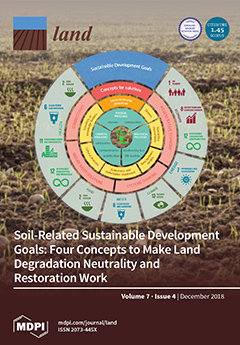The role of remote sensing for understanding large-scale rubber concession expansion in Southern Laos
Increasing global demand for natural rubber began in the mid-2000s and led to large-scale expansion of plantations in Laos until rubber latex prices declined greatly beginning in 2011. The expansion of rubber did not, however, occur uniformly across the country. While the north and central Laos experienced mostly local and smallholder plantations, rubber expansion in the south was dominated by transnational companies from Vietnam, China and Thailand through large-scale land concessions, often causing conflicts with local communities.


